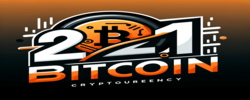KB Kookmin Bank has signed an MoU with blockchain technology firm Atomrigs Lab to jointly explore digital asset management solutions.
This article has been updated to correct the name of Atomrigs Lab.
Major South Korean commercial lender KB Kookmin Bank has signed a Memorandum of Understanding with blockchain technology firm Atomrigs Lab to jointly explore digital asset management and protection solutions. The news was released at a press conference at the bank’s office in Seoul on June 11.
The MoU — signed yesterday, June 10, in Seoul — establishes that the two partners will focus on digital asset market growth and new crypto-related businesses, according to Korean news outlet Yonhap News.
Atomrigs Lab is a firm specializing in blockchain development for the financial sector, and has been developing blockchain-based digital asset protection technologies using next-generation cryptography.
The two firms will further cooperate on developing digital asset management services that harness both Atomrigs Lab’s technology and KB Kookmin Bank’s internal control infrastructure and data protection technologies, the report notes.
Another key area of cooperation will ostensibly be the creation of an ecosystem that would bridge the blockchain and financial sectors.
As Yonhap writes, KB Kookmin has determined its core technological focus using the acronym “ABCDE” — standing for artificial intelligence, blockchain, cloud, data and ecosystem. The bank has reportedly made the promotion of digital transformation a priority as of last year.
As Cointelegraph has previously reported, KB Kookmin Bank came under regulatory scrutiny last year from Korea’s Financial Supervisory Service (FSS). In its joint review of the bank and its fellow domestic institution Nonghyup Bank, the FSS criticized both banks’ management of cryptocurrency transactions in regard to anti-money laundering regulations.
Notably, the FSS’ subsequent order for improvement applied only to accounts that had been contracted with a real-name verification service, not crypto counterparty (exchange) accounts.
The bank had previously faced inspections from Korea’s Financial Services Commission as part of a series of strict compliance checks on domestic banks servicing crypto exchanges.



